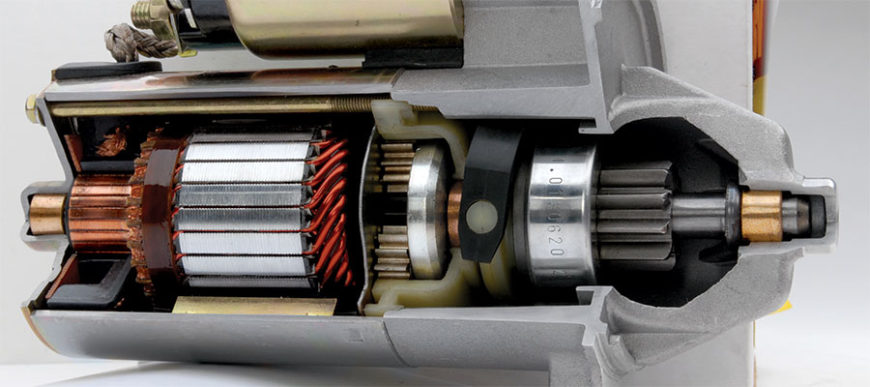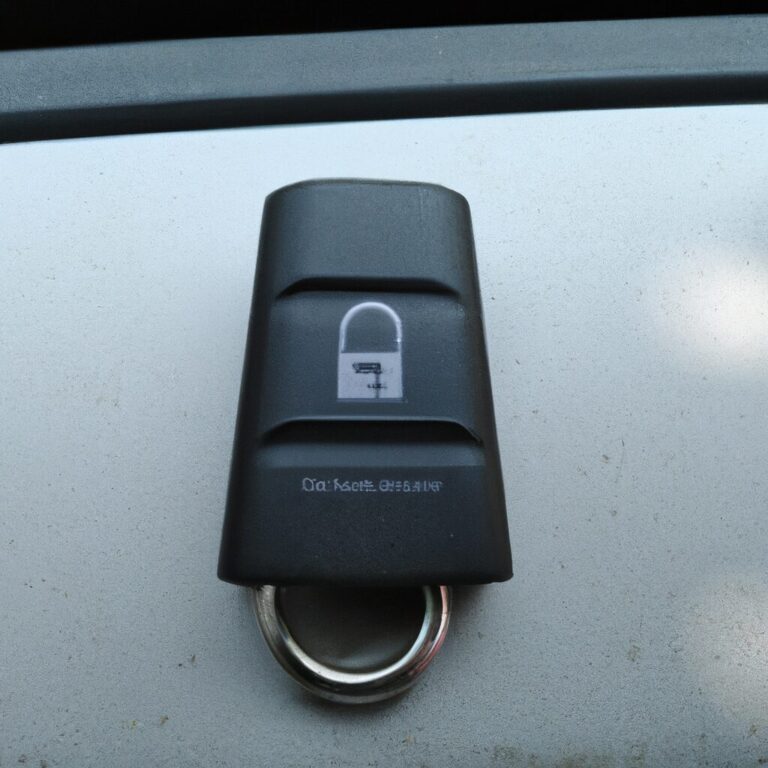Why Should You Replace a Damaged Starter Motor?
Replacing a damaged starter motor is essential to ensure proper functioning and prevent potential vehicle breakdowns. A damaged starter motor can cause issues such as difficulty starting the engine and abnormal noises, impacting the overall performance and reliability of the vehicle.
It is important to address the problem promptly to avoid further damage and maintain the vehicle’s efficiency. A damaged starter motor can lead to various complications, ranging from inconvenience to potential safety hazards. Furthermore, neglecting to replace a faulty starter motor can result in additional problems and more costly repairs down the line.
By understanding the importance of promptly addressing this issue, vehicle owners can ensure the smooth operation of their vehicles and minimize the risk of unexpected breakdowns.

Credit: haynes.com
Signs Of A Faulty Starter Motor
When it comes to keeping your vehicle in optimal condition, paying attention to the signs of a faulty starter motor is crucial. Ignoring these signs can lead to inconvenience and potential breakdowns. Here are a few signs that indicate it may be time to replace your damaged starter motor:
Strongengine Cranks Slowly/strong
One of the most common signs of a faulty starter motor is a slow cranking engine. If you notice that your engine is struggling to start or takes longer than usual to crank, it could be an early indication of starter motor failure. A slow cranking engine can be caused by worn-out brushes or a weakened starter solenoid, which impairs the motor’s ability to rotate the engine’s flywheel efficiently.
Strongclicking Noise When Turning The Key/strong
Another tell-tale sign of a faulty starter motor is a clicking noise when you turn the key. This clicking sound usually occurs when the starter motor’s pinion gear fails to engage the engine’s flywheel properly. Instead of a smooth and quiet start, you will hear a rapid succession of clicks. This indicates that the starter motor is not generating enough power to start the engine.
If you experience this clicking noise, it’s important not to ignore it, as repeated attempts to start the engine can cause damage to the starter motor and other engine components.
By being aware of the signs of a faulty starter motor, such as a slow cranking engine and a clicking noise when turning the key, you can take proactive measures to replace the damaged starter motor before it leads to more extensive issues. A well-functioning starter motor is essential for a smooth engine start and overall vehicle performance.
Consequences Of Ignoring A Faulty Starter Motor
A damaged starter motor in your vehicle should never be overlooked. Ignoring this issue can lead to severe repercussions, affecting your safety, the vehicle’s performance, and potential repair costs. Below are the potential consequences of neglecting a faulty starter motor.
Stranded In Inconvenient Locations
A defective starter motor can unpredictably fail, resulting in a situation where you are unable to start your vehicle. Vehicle breakdowns often happen at the most inconvenient times, such as during rush hour traffic or in remote areas with little to no assistance. Ensuring the health of the starter motor can help avoid these unfavorable situations.
Damage To Engine Components
Continuously trying to start the engine with a faulty starter motor can put undue strain on various engine components. This strain can lead to irreversible damage to the engine, including the flywheel and the teeth in the starter motor’s gears. Ignoring the problem can potentially result in significant repair costs and longer periods of vehicle downtime.
Benefits Of Replacing A Damaged Starter Motor
Enhance your vehicle’s performance by promptly replacing a damaged starter motor. Doing so ensures smooth engine ignition and prevents potential breakdowns while maximizing the lifespan of your car. Prioritizing timely maintenance saves you from costly repairs in the long run.
Benefits of Replacing a Damaged Starter Motor When your car’s starter motor malfunctions, it can lead to a range of issues, including unexpected breakdowns and unreliable performance. By addressing starter motor problems promptly and replacing the damaged component, you can enjoy several benefits that contribute to the smooth running and longevity of your vehicle. Here are the key advantages of replacing a damaged starter motor: Ensures Reliability When the starter motor is in optimal condition, it ensures the consistent and reliable start of your vehicle. Prompt replacement of a damaged starter motor helps maintain the vehicle’s overall dependability, allowing you to confidently rely on your car’s ability to start whenever needed. Prevents Unexpected Breakdowns A damaged starter motor can result in unforeseen breakdowns, leaving you stranded at inconvenient times and locations. By replacing the faulty component, you can preemptively avert potential breakdowns, promoting a safer and more seamless driving experience. In summary, replacing a damaged starter motor offers tangible benefits, such as ensuring the reliability of your vehicle and proactively preventing unexpected breakdowns. Addressing starter motor issues promptly contributes to the overall efficiency and functionality of your car, underscoring the importance of timely maintenance and care for this vital automotive component.
Credit: www.autozone.com
Cost Considerations
If your car’s starter motor is damaged, the cost of replacing it may be a concern. However, it’s important to remember that ignoring a faulty starter motor can lead to further damage and higher expenses in the long run. In this section, we will discuss the price of a starter motor and installation, as well as the potential savings in preventing further damage.
Price Of Starter Motor
The cost of a starter motor depends on various factors, including the make and model of your car as well as the brand of the starter motor itself. On average, a new starter motor can range from $100 to $500. Keep in mind that this price does not include the cost of installation.
While it may be tempting to opt for a cheaper aftermarket starter motor, it’s important to consider the quality and reliability. Investing in a reputable brand may be more expensive initially but can save you from future headaches and costs. Additionally, if you have an older car, finding the right starter motor may be more challenging and potentially more expensive.
Installation Cost
The cost of installing a starter motor can vary depending on the labor rates in your area and the complexity of the replacement. On average, you can expect to pay around $100 to $300 for installation. It’s worth noting that if your starter motor is located in a difficult-to-reach area, such as beneath other engine components, the installation cost may be higher.
While some car owners may have the necessary skills to install a starter motor themselves, it’s generally recommended to have it done by a professional. An incorrectly installed starter motor can lead to further damage or even failure, resulting in additional expenses.
Savings In Preventing Further Damage
By promptly replacing a damaged starter motor, you can potentially save yourself from more costly repairs down the line. A faulty starter motor puts stress on other components of the starting system, such as the battery and alternator. If left unaddressed, this stress can lead to their premature failure, resulting in higher replacement costs.
Moreover, a damaged starter motor can also affect the engine’s performance and fuel efficiency. A properly functioning starter motor ensures that the engine starts smoothly, preventing unnecessary wear and tear on other engine components. This, in turn, can lead to savings in fuel consumption and engine maintenance.
In conclusion, while the cost of replacing a damaged starter motor may seem burdensome, considering the potential savings in preventing further damage makes it a worthwhile investment. By addressing the issue promptly, you can restore your car’s reliability and avoid more expensive repairs in the future.
Professional Vs. Diy Replacement
When it comes to replacing a damaged starter motor, you may be torn between hiring a professional or attempting a DIY replacement. Let’s explore the key factors to consider in this decision.
Expertise And Warranty
- Professional: Technicians have specialized knowledge and experience in handling starter motor replacements.
- DIY: Limited knowledge may lead to incorrect installation voiding any warranty.
Challenges And Risks
- Professional: Minimized risk of errors and ensured reliability of the replacement.
- DIY: Challenges include incorrect installation and voiding warranties.

Credit: www.amazon.com
Frequently Asked Questions For Why Should You Replace A Damaged Starter Motor?
Why Would A Starter Motor Need Replacing?
A starter motor may need replacing if it fails to start the engine, makes strange noises, or has worn-out components.
Is It Worth Replacing A Starter?
Yes, it’s worth replacing a faulty starter as it can prevent starting issues and potential damage to other engine components. Regular maintenance is important for the longevity of your vehicle.
When Should A Starter Be Replaced?
A starter should be replaced if it fails to crank the engine or makes grinding noises. If the vehicle has difficulty starting, it may be due to a faulty starter. Regular maintenance and inspections can help identify when a starter needs replacement.
What Happens If I Don’t Replace My Starter?
Not replacing your starter can result in your vehicle not starting or struggling to start. It may also cause damage to other components and reduce the overall performance of your car. It is important to replace the starter to ensure proper functioning of your vehicle.
Conclusion
To sum up, replacing a damaged starter motor is crucial for ensuring the smooth functioning of your vehicle. Neglecting this essential component can lead to various issues such as difficulty starting the engine, engine stalling, and even complete breakdown in the long run.
By addressing this problem promptly, you not only save yourself from costlier repairs but also maintain the overall efficiency and performance of your vehicle. Don’t wait until it’s too late – prioritize an immediate replacement to avoid any unforeseen inconvenience on the road.

